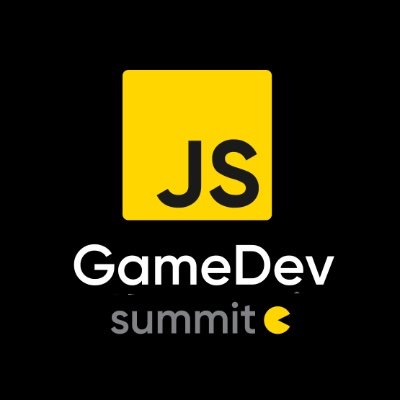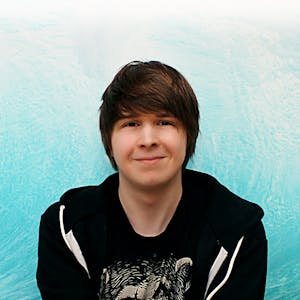1. Introduction to Indie Game Development
Hi, welcome to my talk called So You Want To Be An Indie Game Developer. I'm going to talk about useful things and my experience as an indie game developer. I started learning game development five years ago and took it seriously three years ago. I have a YouTube channel called Space Nomad about indie game development. There are assumptions about game development, such as game design not being even and the indie game dev space being polar. The reality is that success varies, and your first game may not be good. Game design involves making decisions about how the game plays out and its finer details.
Hi, welcome to my talk called So You Want To Be An Indie Game Developer, where I'm going to talk about a bunch of useful things and my experience from what I learned as an indie game developer and it'll be useful for those of you who are thinking about being indie game devs or who just started and could use some advice.
So first of all, who am I? My name is Tamta Satyani, but people call me Tam and I started learning game development five years ago. I've been an indie game developer sort of I've only took it seriously three years ago and I've had a YouTube channel called Space Nomad about indie game development for a little over two years now.
Back then, all those years ago when I was just starting, I had a lot of assumptions about what game development was like, as I'm sure a lot of you that are starting out or just started out do. So what were those assumptions? The first one was that game design isn't even. You don't even think that game design is a skill until you get into game development, you just think that the genre of the game and the rules of the game come by themselves or there are genres that are already made up, you don't have to make up anything new, and you just think that all the skills you will need are coding, art, SFX, music, all those stuff, but the realisation that something is off takes a while to set in, because when you make your first game, you're in the sort of honeymoon phase like wow, I made something that works and then when the honeymoon phase passes you're like wow, this is actually very boring to play. So assumption number two is that the indie game dev space is very polar, so there are those who became successful overnight for no reason, and like extremely successful, we all know those games and those developers, things like Undertale, Stardew Valley, Hollow Knight, there's more, there's Five Nights at Freddy's, yeah, all those games. And then there are those who nobody has ever heard about, and I can't give you examples because I've never heard of them. So yeah, that also, you can't really do anything to become one or the other, it's dependent solely on chance, which one of those you'll be. But perhaps the worst of them all is the assumption that you will be in the first category. That your game is just so amazing, that it will magically gain success overnight without you doing anything aside from just making a great game, and that you'll make a lot of money with it. I hate to break it to you, but you won't. First of all, your first game is probably not even going to be good. And second of all, you're not special, and neither is your game, and neither am I. None of us are special.
Alright, so, now that I've crushed all of your hopes and dreams, let's get back to reality. So what's reality like? First of all, there's a lot of space in between the extremely successful and the nobody-has-seen-my-video-game-ever. A couple examples of these are Dashing Fire by Blackthorn Prod and Willy the Snail by Jonas Tyroler. They're not quite Stardew Valley level of success, and even those are more on the upper side. There's also a lot of things in between this level of people are hearing about your game and also the completely lower part. There's a lot of games that the developers are able to... There's a lot of indie game devs that are able to sustain themselves even though not that many people have heard of them. There's indie game devs that are able to live of indie game development.
Getting back to game design now, just so we're all on the same page, I'm gonna talk a little bit about what it is. It's the functional design of video games. So, how the game plays out, the genre of the game. For example, I want to make a roguelike or I want to make a first-person shooter. That's all game design decisions. The finer details of your game are also game design decisions. For example, okay, I have a first-person shooter but what kind of weapons do I have? How do they fire? Do the bullets ricochet? Do I have a double jump? If I have a double jump, how high is each jump? Etc.
2. Importance of Game Design and Marketing
Game design is a crucial aspect of game development, and it has different branches like level design. While art and coding are not mandatory, bad game design can make a game confusing and frustrating. To market your game, focus on giving back to the community, creating tutorials, and interacting with other indie game devs. Be present on social media platforms without being annoying.
Those are also game design decisions and game design is such a big field that it has different branches. For example, there's level design which corresponds to just the placement of things in a level which you might be thinking, why would I need to learn that? It's not hard to just plop some trees and a couple rocks. But as somebody who constantly gets confused and lost in video games and doesn't know what to do or where to go, I'm begging you, please study level design.
Another thing very interesting about game design and very counterintuitive is that game design is the only mandatory part. You can go, the list of things that I talked about, art, coding, SFX, et cetera, you can be bad at them all and still make a good game. For example, Thomas Was Alone is an example I really like for the art part. The art is extremely simplistic, it doesn't require you to know how to draw well, but the game is still loved by many and I really like it myself and, yeah, it's a lot of fun. So yeah, art isn't mandatory, being good at art isn't mandatory when making a video game.
As for coding, so what I like to call the big four, the four biggest public game engines, all of them support visual scripting. So like visual scripting, for those of you who don't know, it's just you don't have to write any code, you just move a couple notches around and then the function L of the game creates itself, so to say. So yeah, visual and coding games making the functionality of the game is only going to become easier and easier as technology advances. So yeah, being good at coding is also not mandatory.
But imagine a game that is confusing and frustrating and it's just not fun to play at all, that's what a game with bad game design is. And if you're not good at game design, if you don't study game design, that's what your game is going to be like. So let's say you release your absolutely amazing game, you've figured out game design, but you're going to be, and you publish your game, and then you let the existential crisis set in with the cricket noises as your game receives two views. And this is because a lot of people, starting in the game devs, assume that a good game will sell itself, or that my game will magically be known, and that, like we said, we're going to be in the first category, the extremely successful game developer's category, and it's all up to chance etc etc. So the good news here is that you can actually do things in order to tilt the scales in your favor. You can do a lot of things to market your video game, and you can afford it, because a lot of it is free. So here are some things that you can do. First of all, think about what you give to the community instead of what you're just taking stuff. So for example, you can give knowledge, you can make video tutorials, perhaps about game design if you studied it, perhaps, or not necessarily video, you can make, I don't know, text tutorials I guess too, perhaps about art if you're good at art, perhaps about programming, etc. Also interact with the community a lot, interact with other indie game devs, you know, be out there. And speaking of be out there, also be everywhere but not in an annoying way. An example of this I really like is that, so there's on Twitter, there's this hashtag called Screenshot Saturday and people host it. So for example, somebody will make a post, tag it Screenshot Saturday and say, show me your video games. And then there was this one game that I kept seeing on every Screenshot Saturday post and because brain likes things that it recognizes, I just sort of, I thought, wow, I've seen this thing so many times, I wonder what it is. And I checked it out. At the same time, this person wasn't annoying because they didn't do it in an inappropriate place. Yes, they put the link to their game everywhere, but where people asked for links to their game. Definitely don't do the annoying stuff.
3. Game Promotion and Standing Out
Don't put your video game link under random tweets. Experiment with different platforms and genres. Be convenient and easily accessible. Starting with browser games is a good way to attract players. Statistics show that watch-to-play rates are higher for browser games. Stand out in the indie game dev space by focusing on your strengths and making deliberate decisions. Choose one main platform to focus on, such as Twitter or TikTok, based on your skills and game aesthetics.
Don't put your video game link under random tweets. I've seen people do that. That only annoys people and makes them not want to do anything with you. Experiment. Try different stuff. Try different platforms. Try different genres. Not genres, try different places. Things like that.
And another very important thing is you have to be convenient and easily accessible. So if somebody gets interested in your game just a little bit, they saw a screenshot and liked it, make sure there's a very easy way for them to check out the game. A good way of doing this is starting out with browser games.
And let me just show you some personal statistics. So here's the statistics of watch-to-play rate of my video games. So this is a percentage of how many people that have seen my game page on GameJolt, went to check it out. And well, they did check it out, if they watched it, but went to actually play the game. And this is one for my browser games. So the last one here, the last graph, is the average. So my average percentage of people from just seeing my game page to actually wanting to play my game is over 50%, which is great. As for my desktop games, things aren't nearly as good because downloading a game takes effort and your audience doesn't trust you enough to think that the effort is worth it. Because how do they know if your game is great if they've never played any of your games? So yeah, definitely I advise you to start out with browser games, make a lot of browser games and then when people are familiar with your content, you're just sort of giving them a demo, a taste of what your games are like, then they'll be, if they like it, they will be more willing to put more effort into trying your content out.
Another thing is find your best way of standing out, which you absolutely have to stand out to survive in the indie game dev space. Think about what are you good at? And what do you want to do? What type of games do you want to make? And what do you want your workflow to be like? And think about this a lot, because your decisions are going to matter.
So let's be a little more specific with that. I would say choose one main platform to focus on. You can try out other platforms, of course, but just have one main space where most of your work goes. For example, if you're good at art, and making your video game look pretty, you can try to try out Twitter or TikTok. These three aren't the only options, by the way, they're just ones that I've tried out and I can talk about. There's definitely way more options. But, um, yeah, if you're good at making short pretty gifs, then you can try Twitter or TikTok.
4. Choosing YouTube and Experimenting with Startups
I went with YouTube because people liked my sense of humor and sarcasm. Making content for YouTube affects your workflow and the type of content you make. It's harder to make bigger games on YouTube since you need to keep pushing content. Experiment with startups, even though they may fail. Do what you want to do and don't force yourself to make games that don't align with your preferences.
I myself went with YouTube because a lot of people like my sense of humor. A lot of people like my sarcasm. Yeah, it was fun to watch. So I decided, like in real life, a lot of people told me I was funny, so I decided to try YouTube.
And also, keep in mind that this will affect your workflow and the type of content you make. So, for example, you can't make a lot of videos about one single game, but you can make a lot of gifs about it. Or you can make a lot of, you know, small, tiny snippets about a big game to keep it fresh. So, for example, if you go with YouTube, you will generally have a harder time making bigger games, because you need to- you can only make so many videos about a single game, and you need to keep pushing content and making content.
So I, for example, can't afford making big games a lot of the time. But if you're okay with making smaller games, then of course, go with it. It's not one thing isn't better than the other, it's just different kinds of work. So yeah, that's something to keep in mind.
Another thing, like I said, experiment. So trying to register on startups is a good idea. So for example, if somebody makes a startup of a platform for indie game developers, definitely try it, jump onto it because it's easier to be more well known in a startup. It's easier to grow your platform on a startup. The downside is you don't really know if that startup is going to succeed or fail. A good example of that is Amino. I tried Amino when it first came out, though. That was a while ago, so, like, yeah. And we all know how that one went. Nobody really talks about Amino anymore, even though it seemed like Amino was going to be successful. And it seemed like Amino was going to be a big thing. But it wasn't. But don't be afraid of that kind of fail. And don't be afraid to make those sorts of experiments, because eventually you're going to hit the spot. Most importantly, do what you want to. And not in the sense that do whatever you want to do, but more like don't do something you really don't want to. For example, like I said before, if you don't want to make mostly small games that don't go with YouTube and stuff like that. Because it's really easy to burn out when making indie games.
Starting as an Indie Game Developer
Starting as an indie game developer requires self-motivation. Game design and programming are the most important skills for solo developers. Focus on your strengths and find a community to complement your skills. Learning everything can be overwhelming. John Carmack suggests focusing on what you're strongest at. It's best to not handle everything together and get lost. The first question is whether you only work as an indie game developer or have another day job.
And it's really easy to hate yourself and your work. You don't want any of that. Because when... Especially when starting as an indie game developer, you will be running mostly on your motivation for the first couple years at least. Or at the very, very least. First half a year. If you're lucky.
In conclusion, you're not special, but nobody is. You don't need to be. Game design is important. People are more willing to give web games a shot. And do what you're good at and what you like doing.
Thank you for listening. So if you have any questions, feel free to ask them. If you like what I do, if you like this talk, I mean, check out my YouTube channel. I talk about game design there a bunch. And there's my business email, in case you need it. So let's discuss the answers to your poll question. So you asked which of the following skills do you think is most important for solo dev? And it's a tie between game design and programming. No, game design just dropped, yeah. So what do you think about that? About what I expected, game design and programming on the top. And programming dominates game design a little because people don't, not a lot of people realise how much you can do with very little tech and how much they, pre-made, like pre-made things there is to make the technical part as easy as possible. As long as you know how games are made and game design, et cetera.
Yeah, I get it. Actually, I had the same kind of question before. I was struggling between should I learn everything else? So I'm stronger in programming but I don't know much about drawing and animation and SFX and music and stuff like that. I was drowning myself in learning more and more and I saw a tweet from John Carmack which he said that it was a discussion about should you learn everything or maybe you should focus on one thing? He said that maybe it's best to focus on what you're strongest and find a community of some people that have the same thought as you and just ask them to join you to complete your game, other aspects of your game. I'm trying to do that myself so I'm focusing on programming myself because I'm stronger in that and trying to learn other things but I'm trying to not handle everything together and get lost.
So we have some questions for you. The first question is, do you only work as an indie game developer or do you have another day job or something like that? So yes and no.
Indie Developer Journey and Supporting Ukraine
I work as an indie developer and also have a day job in an indie team. To gain attention for your game, interact with the community, attend Summits and Cons, and give back to the community. Starting out in the industry is challenging, but progress comes with time and learning from others. Monetizing browser games can be done through platforms like Game Jolt, and protecting copyrights on the web requires further exploration. Let's support Ukrainian game devs during these difficult times. Glory to Ukraine!
I do work as an indie developer but I don't only work as a solo developer. So this thing I mean, I talked about my solo demo stuff which I would like to switch completely to eventually, but I also have a day job in an indie team. Okay that's awesome. I feel you.
Another question is, you've talked about trying to be everywhere so people pay attention to your game, what other ways are there to do this? Well going to places for example, meeting people, interacting with the community, going to Summits and Cons is a very good option whether as a speaker or just interacting with others as a listener, so to say. That's meeting other people actually, trying to give to the community is a very big thing that a lot of beginner indie devs underestimate. Yeah exactly, I've recently been part of an indie game dev chain inside the twitter, and it's amazing how much people support each other, indie game devs support each other and they share their games and they repost your games and ask about how you're doing and we have like follow fighters where we post like and tag all the game devs into game devs and we have a screenshot Saturday and each day has a hashtag for itself and it's really supporting and awesome to see that and please don't, I want to ask the people so please don't underestimate this.
Yeah definitely and don't be shy that's hard but don't just shy away from interactions don't think oh well they probably don't like have time for me or something as in like don't barge into people's lives or people's DM's but like also don't be afraid to reach out to someone. You could do it in a public place for example their Discord server or their Twitter comments or their YouTube comments it doesn't have to be like personal email or something. Yeah exactly they're very supportive and another question is you said you have been doing this for around five years now was it hard to start making real progress in the industry and what was the best method that worked to boost your skills? Yes it was very hard to make any progress at all there's for a long while I actually like nobody was, like nobody knew about the stuff I did except for like my mom and my sister so it's very hard to get past that threshold but slowly or surely you'll get there and what was the second part of the question again? They asked what was the best method that worked to things with your skills? So if they're talking about technical skills I mean they've been going pretty steady just I don't know watching others listening to others listening to feedback I guess from people that you know are good at whatever you want to be better at code whether that be coding or game design or art or whatever. That's a very big one getting personal feedback is ideal but just listening to tutorials in general is also good for marketing skills also like watching marketing videos I guess ideas for specifically game development marketing. Yeah I get it.
And also we have another question in regards to giving not taking how do you monetize your browser games and how do you protect your copyrights on the wild wild web? Um well uh monetization personally uh I most of my monetization comes from my channel but also I get a little bit of monetization from um uh Game Jolt itself has a system for monetizing games. Game Jolt is like the website where I post my browser games and it has its own little system it has ads on like the game page and it handles all the monetization but uh 30% goes to me. Uh as for handling copyright um I sadly don't know the answer to that one myself. Yes I haven't any I haven't had any problems with my copyright like my games being sold. I get it. I've had the same problem with monetizing my games so I looked into AdSense for HTML5 games but it's in the beta version right now and I also had a problem with that but they are currently only showing ads on specific languages so it's not available for my native languages. It's Persian right now and that's another problem so I was thinking like maybe moving to another engine like NotFabGames maybe it would be best to monetize my games but I'm not sure. I'm still figuring it out.
And I also wanted to ask if you had any words on the current situation that you wanted to talk about in a crane? Yeah thank you for giving me the floor as many of our viewers probably know the situation in Ukraine is very grim right now and I just want to like show say that I'm show support for our fellow Ukrainian game devs and encourage others to also show support in these trying times and also you know other Ukrainians, and do whatever you can, you know, donations are real but just words of support are also great. Glory to Ukraine! Thank you it was inspiring and I agree with you. Glory to Ukraine! Thank you for the talk it was amazing and I personally learned a lot so thank you.


























Comments